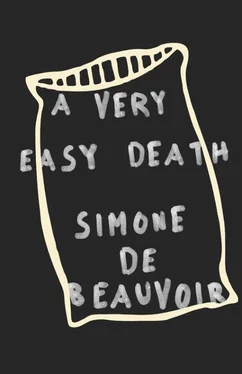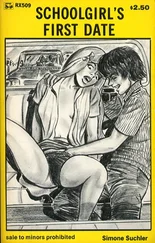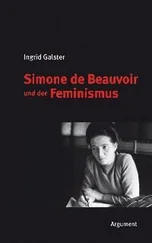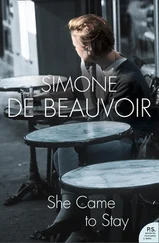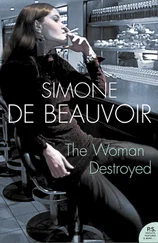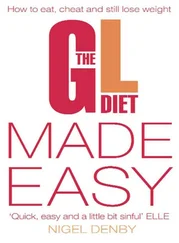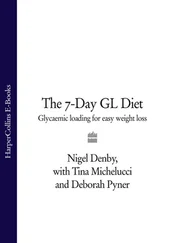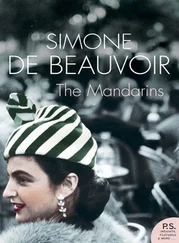Simone de Beauvoir - A Very Easy Death
Здесь есть возможность читать онлайн «Simone de Beauvoir - A Very Easy Death» весь текст электронной книги совершенно бесплатно (целиком полную версию без сокращений). В некоторых случаях можно слушать аудио, скачать через торрент в формате fb2 и присутствует краткое содержание. Город: New York, Год выпуска: 2012, ISBN: 2012, Издательство: Pantheon Books, Жанр: Биографии и Мемуары, на английском языке. Описание произведения, (предисловие) а так же отзывы посетителей доступны на портале библиотеки ЛибКат.
- Название:A Very Easy Death
- Автор:
- Издательство:Pantheon Books
- Жанр:
- Год:2012
- Город:New York
- ISBN:978-0-307-83219-1
- Рейтинг книги:4 / 5. Голосов: 1
-
Избранное:Добавить в избранное
- Отзывы:
-
Ваша оценка:
- 80
- 1
- 2
- 3
- 4
- 5
A Very Easy Death: краткое содержание, описание и аннотация
Предлагаем к чтению аннотацию, описание, краткое содержание или предисловие (зависит от того, что написал сам автор книги «A Very Easy Death»). Если вы не нашли необходимую информацию о книге — напишите в комментариях, мы постараемся отыскать её.
The Sunday Telegraph
Powerful, touching, and sometimes shocking, this is an end-of-life account that no reader is likely to forget.
A Very Easy Death — читать онлайн бесплатно полную книгу (весь текст) целиком
Ниже представлен текст книги, разбитый по страницам. Система сохранения места последней прочитанной страницы, позволяет с удобством читать онлайн бесплатно книгу «A Very Easy Death», без необходимости каждый раз заново искать на чём Вы остановились. Поставьте закладку, и сможете в любой момент перейти на страницу, на которой закончили чтение.
Интервал:
Закладка:
‘I saw too many people yesterday, and they tired me,’ she told me on Sunday. She was in a bad mood. Her usual nurses were off duty; an inexperienced girl had upset the bed-pan full of urine; the bed and even the bolster had been soaked. She closed her eyes often, and her recollection was confused. Dr T could not make out the plates that Dr D had sent and the next day there was to be a fresh intestinal X-ray. ‘They will give me a barium enema, and it hurts,’ Maman told me. ‘And they are going to shake me about again and trundle me around: I should so like to be left in peace.’
I pressed her damp, rather cold hand. ‘Don’t think about it in advance. Don’t worry. Worrying is bad for you.’
Gradually her spirits came back, but she seemed weaker than the day before. Friends telephoned and I answered. ‘Well!’ I said to her, ‘There is no end to it. The Queen of England wouldn’t be more spoilt – flowers, letters, sweeties, telephone-calls! What quantities of people think of you!’ I was holding her tired hand: she kept her eyes shut, but there was a faint smile on her sad mouth. ‘They like me because I am cheerful.’
She expected many visitors on Monday and I was busy. I did not come until Tuesday morning. I opened the door and stopped dead. Maman, who was so thin, seemed to have grown still thinner and more shrivelled, wizened, dried up, a pinkish twig. In a somewhat bewildered voice she whispered, ‘They have dried me out completely.’ She had waited until the evening to be X-rayed and for twenty hours on end they had not allowed her to drink. The barium enema had not hurt; but the thirst and the anxiety had quite worn her out. Her face had dissolved: she was tense with unhappiness. What was the result of the X-rays? ‘We can’t understand them.’ the nurses replied in frightened voices. I managed to see Dr T. The information the plates gave was still obscure: according to him there was no ‘pocket’, but the bowel was contorted by spasms, nervous in origin, which had prevented it from working since the day before. My mother was obstinately sanguine; but for all that she was anxious and highly-strung – that was the explanation of her tics. She was too exhausted to see visitors and she asked me to telephone Father P, her confessor, and put him off. She scarcely spoke to me, and she could not manage a smile.
‘I’ll see you tomorrow evening,’ I said as I left. My sister was arriving during the night and she would go to the clinic in the morning. At nine in the evening my telephone rang. It was Professor B. ‘I should like to have a night-nurse for your mother: do you agree? She is not well. You thought of not coming until tomorrow evening: it would be better to be there in the morning.’ In the end he told me that there was a tumour blocking the small intestine: Maman had cancer.
Cancer. It was all about us. Indeed, it was patently obvious – those ringed eyes, that thinness. But her doctor had ruled out that hypothesis. And it is notorious that the parents are the last to admit that their son is mad; the children that their mother has cancer. We believed it all the less since that was what she had been afraid of all her life. When she was forty, if she knocked her chest against a piece of furniture she grew terribly frightened – ‘I shall have cancer of the breast.’ Last winter one of my friends had been operated upon for cancer of the stomach. ‘That is what is going to happen to me, too.’ I had shrugged: there is a very wide difference between cancer and a sluggishness of the bowels that is treated with tamarind jelly. We never imagined that Maman’s obsession could possibly be justified. Yet – she told us this later – it was cancer that Francine Diato thought of: ‘I recognized that expression. And,’ she added, ‘that smell, too.’ Everything became clear. Maman’s sudden illness in Alsace arose from her tumour. The tumour had caused her fainting-fit and her fall. And these two weeks of bed had brought on the blockage of the intestine that had been threatening for a long while.
Poupette, who had telephoned Maman several times, thought she was in excellent health. Poupette was closer to her than I: she was fonder of her, too. I could not let her come to the nursing-home and all at once see death on her face. I telephoned her at the Diatos’, a little while after her train had got in. She was already asleep: what an awakening!
On that Wednesday, 6 November, the gas, the electricity and public transport were on strike. I had asked Bost to come and fetch me by car. Before he arrived Professor B telephoned again: Maman had vomited all night long; in all likelihood she would not get through the day.
The streets were less blocked with traffic than I had feared. At about ten I met Poupette outside the door of room 114. I repeated what Professor B had said. She told me that since the beginning of the morning a resuscitation expert, Dr N, had been working on Maman: he was going to put a tube into her nose to clean out her stomach. ‘But what’s the good of tormenting her, if she is dying? Let her die in peace,’ said Poupette, in tears. I sent her down to Bost, who was waiting in the hall: he would take her to have some coffee. Dr N passed by me; I stopped him. White coat, white cap: a young man with an unresponsive face. ‘Why this tube? Why torture Maman, since there’s no hope?’ He gave me a withering look. ‘I am doing what has to be done.’ He opened the door. After a moment a nurse told me to come in.
The bed was back in its ordinary place in the middle of the room with its head against the wall. On the left there was an intravenous dripper, connected with Maman’s arm. From her nose there emerged a tube of transparent plastic that passed through some complicated apparatus and ended in a jar. Her nose was pinched and her face had shrunk even more: it had the saddest air of submission. In a whisper she told me that the tube did not worry her too much, but that during the night she had suffered a great deal. She was thirsty and she was not allowed to drink: the nurse put a thin tube to her mouth with the other end in a glass of water; Maman moistened her lips, without swallowing. I was fascinated by the sucking motion, at once avid and restrained, of her lip, with its faint downy shadow, that rounded just as it had rounded in my childhood whenever Maman was cross or embarrassed. ‘Would you like me to have left that in her stomach?’ said N aggressively, showing me the jar full of a yellowish substance. I did not reply. In the corridor he said ‘At dawn she had scarcely four hours left. I have brought her back to life.’ I did not venture to ask him ‘For what?’
Consultation of specialists. My sister at my side while a physician and a surgeon, Dr P, palpate the swollen abdomen. Maman groans under their fingers: she cries out. Morphine injection. She still groans. ‘Another injection,’ we beg. They are against it: too much morphine would paralyse the intestine. What are they hoping for then? There is no electricity, because of the strike, and they have sent a blood-sample to the American hospital, which has its own generator. Are they thinking of operating? That is hardly possible, the surgeon tells me as he leaves the room; the patient is too weak. He walks away, and an elderly nurse, Mme Gontrand, who has heard him, bursts out, ‘Don’t let her be operated on!’ Then she claps her hand to her mouth. ‘If Dr N knew I had said that to you! I was speaking as if it were my own mother.’ I question her. ‘What will happen if they do operate on her?’ But she has closed up again: she does not answer.
Maman had gone to sleep: I went away, leaving telephone numbers with Poupette. When she called me at Sartre’s place at about five there was hope in her voice. ‘The surgeon wants to try the operation. The blood analyses are very encouraging; her strength has come back, and her heart will stand it. And after all, it is not absolutely sure that it is cancer: perhaps it is just peritonitis. If it is, she has a chance. Do you agree?’
Читать дальшеИнтервал:
Закладка:
Похожие книги на «A Very Easy Death»
Представляем Вашему вниманию похожие книги на «A Very Easy Death» списком для выбора. Мы отобрали схожую по названию и смыслу литературу в надежде предоставить читателям больше вариантов отыскать новые, интересные, ещё непрочитанные произведения.
Обсуждение, отзывы о книге «A Very Easy Death» и просто собственные мнения читателей. Оставьте ваши комментарии, напишите, что Вы думаете о произведении, его смысле или главных героях. Укажите что конкретно понравилось, а что нет, и почему Вы так считаете.
